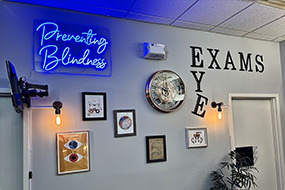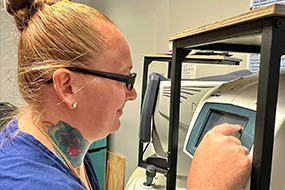
Cataracts are a common eye condition that affects millions of people worldwide. As we age, the natural lens inside our eyes can become cloudy, leading to blurred or distorted vision. This condition, known as a cataract, can significantly impact your daily life, making it difficult to perform everyday tasks such as reading, driving, or even recognizing faces.
Causes and Symptoms of Cataracts
Cataracts are typically caused by the gradual breakdown and clumping of the proteins in the lens of the eye. This process can be influenced by a variety of factors, including:
Age: The most common cause of cataracts is simply the natural aging process. As we grow older, the lens in our eyes becomes less flexible and more opaque, leading to the development of cataracts.
Exposure to ultraviolet (UV) light: Prolonged exposure to UV radiation from the sun can contribute to the formation of cataracts.
Certain medical conditions: Diseases such as diabetes, hypertension, and eye injuries can also increase the risk of developing cataracts.
The symptoms of cataracts can vary, but often include:
· Blurred or cloudy vision
· Difficulty seeing at night or in low light conditions
· Increased sensitivity to glare and light
· Frequent changes in eyeglass or contact lens prescriptions
· Double vision in a single eye
· Faded or yellowed colors
The progression of cataracts can be gradual, and the symptoms may not be immediately noticeable. Regular eye exams are crucial for the early detection and management of this condition.
The Importance of Regular Eye Exams for Early Detection of Cataracts
Regular eye exams are essential for the early detection and monitoring of cataracts. During a comprehensive eye exam, your eye doctor will perform a thorough examination of your eyes, including a visual acuity test, a slit-lamp examination, and possibly other diagnostic tests. Early detection allows for the implementation of appropriate treatment strategies, which can help slow the progression of cataracts and maintain your visual function. Regular check-ups enable your eye doctor to track the changes in your lens over time and make informed decisions about the best course of action. By prioritizing regular eye exams, you can take a proactive approach to your eye health and ensure that any changes in your vision are addressed promptly.
Treatment Options for Cataracts
In the early stages of cataract development, non-surgical treatment options may be recommended to help manage your symptoms and maintain your visual function. These options include:
• Improved lighting and glare reduction: Using brighter, anti-glare lighting in your home and workplace. Wearing sunglasses or anti-glare lenses when outdoors.
• Prescription eyeglasses or contact lenses: Adjusting your eyeglass or contact lens prescription to compensate for the changes in your vision.
• Magnifying devices: Using handheld or stand-mounted magnifiers to aid in reading and other close-up tasks.
• Dietary changes and supplements: Consuming a diet rich in antioxidants, such as lutein and zeaxanthin, which may help slow the progression of cataracts.
If non-surgical treatments are no longer effective in managing your cataract symptoms, your eye doctor may recommend surgical intervention. Cataract surgery is one of the most commonly performed and successful surgical procedures in the world, with a high success rate and a low risk of complications. The primary surgical treatment for cataracts is called phacoemulsification. The entire procedure is typically performed under local anesthesia and takes approximately 30 minutes to complete. In most cases, you'll be able to return home the same day and resume your normal activities within a few days.
Book Your Comprehensive Eye Exam with Doc Eye Today
Cataract treatment can have a profound and positive impact on your quality of life. By restoring your clear vision, you'll be able to regain the independence and confidence to perform daily tasks, enjoy your favorite hobbies, and fully engage with the world around you.
The key to successful cataract management is early detection and proactive care. By scheduling regular eye exams and working closely with your eye doctor, you can take control of your eye health and ensure that any changes in your vision are addressed promptly.
If you're experiencing vision problems or suspect you may have cataracts, schedule an appointment with Doc Eye, your trusted eye care provider. Dr. Watson is dedicated to providing personalized, comprehensive care to help you achieve the best possible visual outcomes. Visit our office in Waterford, Connecticut, or call (860) 499-3500 to book an appointment today.


















